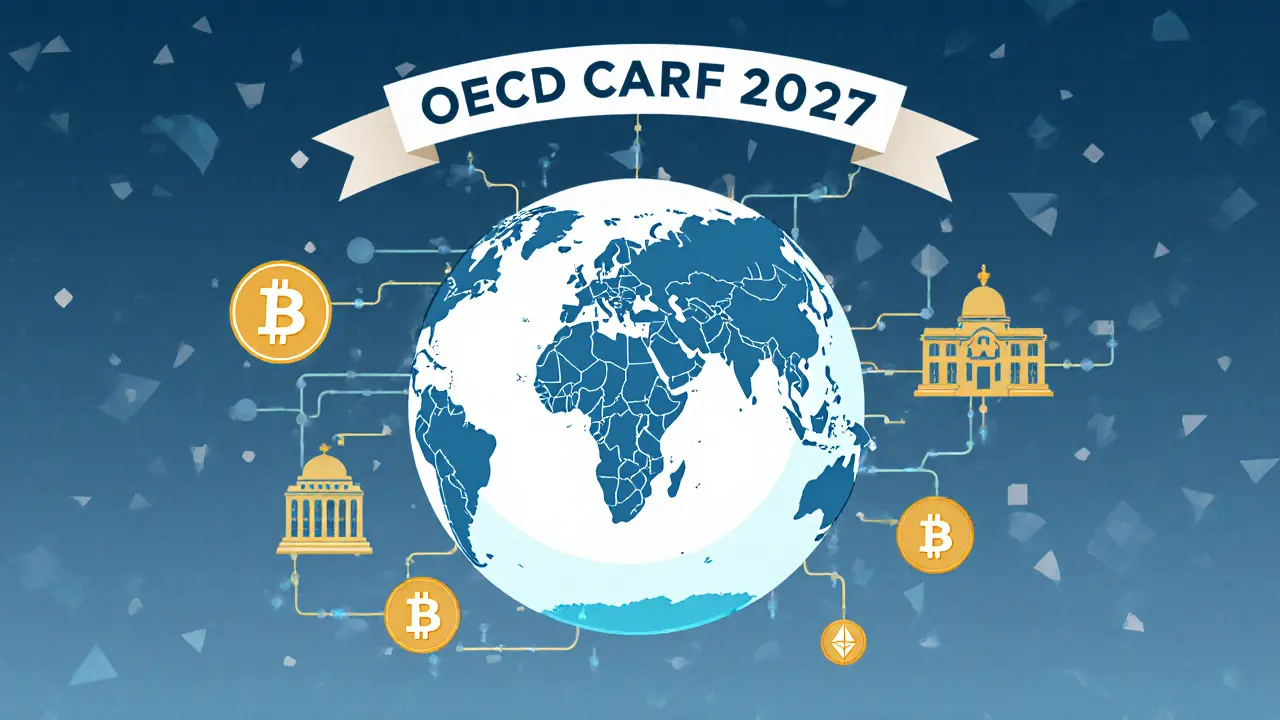India will implement the OECD Crypto-Asset Reporting Framework in 2027, forcing exchanges to share user crypto data globally. This move aims to close offshore tax evasion loopholes and bring transparency to one of the world's largest crypto markets.
OECD CARF India: What It Means for Crypto Regulation and Global Compliance
When you hear OECD CARF India, the implementation of the OECD's Common Reporting Standard for automatic exchange of financial account information in India. Also known as Common Reporting Standard (CRS)**, it is a global system where countries automatically share financial data — including crypto holdings — to stop tax evasion. This isn't just about bank accounts anymore. It’s now catching crypto transactions, and India is fully in. The Automatic Exchange of Information (AEOI), a framework under the OECD that requires countries to exchange financial data annually is the engine behind CARF. In India, it means exchanges and wallet providers must report user data to the tax authorities, who then share it with other countries. If you held crypto on Binance, CoinDCX, or even a DeFi platform in 2024 or 2025, your activity could be flagged and sent abroad.
The FATF Travel Rule, a global standard requiring crypto exchanges to share sender and receiver details for transactions over $1,000 works hand-in-hand with CARF. While CARF looks at account balances and income, the Travel Rule tracks individual transfers. Together, they create a full picture: who you are, what you own, and who you sent crypto to. This isn’t theoretical. In 2024, India’s Income Tax Department started cross-referencing crypto data from exchanges with CARF filings from 100+ countries. If you didn’t report a $5,000 ETH transfer to a foreign wallet, you’re now on their radar.
What does this mean for you? If you’re an Indian crypto user, you can no longer assume anonymity. Even if you use a non-Indian exchange, your data may still be reported through CARF if that exchange has operations in a participating country. The OECD, the Organisation for Economic Co-operation and Development, a global policy body that sets financial transparency standards doesn’t enforce rules directly — but its members, including the U.S., U.K., EU, and now India, do. And they’re sharing data like never before.
You’ll find posts here that dig into real cases: how Indian traders got flagged after using Binance, why some DeFi wallets are now being treated like bank accounts, and what happens when the IRS gets your Indian crypto data. There are also reviews of exchanges that comply with CARF — and ones that don’t, and why you should avoid them. We cover the latest updates on how India is implementing these rules, what penalties you could face, and how to stay compliant without overpaying taxes.
This isn’t about fear. It’s about clarity. The rules are changing fast, and the system is now wired to catch mistakes — not just by accident, but by design. Whether you’re holding Bitcoin, staking tokens, or trading NFTs, your digital activity is now part of a global financial map. The question isn’t whether you’re being watched. It’s whether you’re ready for what they see.
